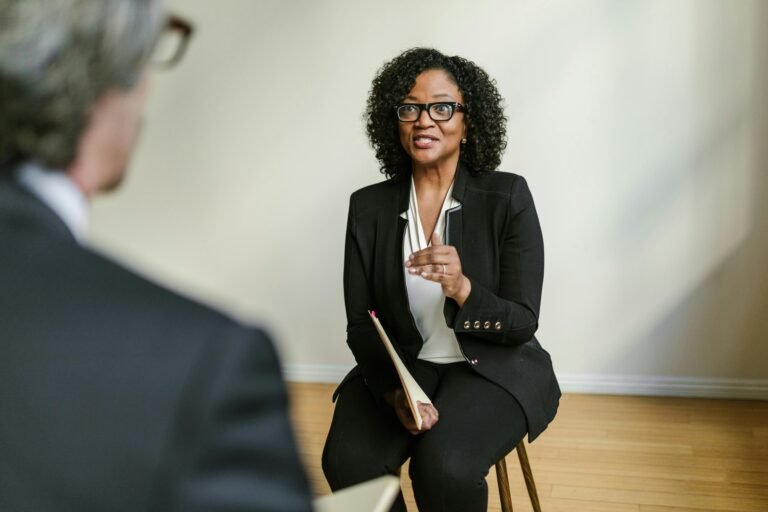Finding the right school to work in is about more than just the job description or commute. It’s about discovering a place where your values, work style, and goals align with the school’s culture, mission, and people. When a school is “the right fit”, you’ll feel supported, motivated, and able to bring your best self to students and colleagues every day.
This reflection tool is designed to help you think deeply about what “fit” means to you and prepare thoughtful questions to ask during your interview to make sure the school feels right for you.
Take your time with each section. There are no “right” answers, just honest ones that help you find a place where you can thrive.
Section 1: Clarify What Matters to You
Before you evaluate any school, get grounded in your own needs, values, and priorities. This will help you recognize alignment when it’s there—and avoid settling when it’s not.
Reflection Prompts:
- What kind of school culture brings out your best? (Collaborative, structured, innovative, etc.)
- What 2–3 core values guide your work in schools?
- What kind of support or leadership helps you feel seen and successful?
- Are there programs, practices, or beliefs that are especially important to you?
- What is one non-negotiable you have for your next role?
Tip: Write down your top 3 “fit factors.” Keep them handy as you review postings, prepare for interviews, and reflect afterward.
Section 2: Reflect on the School Itself
Once you start learning about a school—from its website to its job description to your initial conversations—try to look beyond the surface. Notice what’s said and what’s shown.
Reflection Prompts:
- What values seem to be at the heart of this school’s mission?
- Do the staff or leadership reflect the diversity and strengths of the student community?
- What messages are sent through school communications (newsletters, websites, language choices)?
- Are professional development and collaboration mentioned as part of the culture?
- Can you see examples of inclusive practices or community partnerships?
Tip: Ask yourself: Does this school seem to live out the things it says it values? Your instincts here are meaningful—don’t dismiss them.
Section 3: Questions to Ask Them
The interview is a two-way street. Use this opportunity to learn about the school culture, leadership style, and support systems. Asking thoughtful questions shows you’re engaged and helps you figure out if the school is a good match for you.
Sample Questions to Ask:
- How do teachers and staff typically collaborate? Are there formal coaching or mentorship opportunities?
- What kinds of professional development and growth opportunities do you offer?
- Can you share examples of recent initiatives around equity, inclusion, or supporting diverse learners?
- How do you engage families and communities, especially those from underrepresented backgrounds?
- How does school leadership listen to and act on staff feedback?
- What does success look like for someone in this role after the first year?
- How do you support staff well-being and work-life balance?
Tip: Listen not only to what they say, but how they say it. Clear, honest answers and enthusiasm about growth and support are positive signs. If responses feel vague or dismissive, that may be a red flag.
Section 4: Debrief After the Interview
After your interview or school visit, take a moment to reflect before jumping into a decision. Your emotional response is data too.
Reflection Prompts:
- How did you feel during and after your interaction with the team?
- Did the tone and energy match what you expected from their values or website?
- Were your questions answered clearly and respectfully?
- Did anything surprise you in a good or not-so-good way?
- Can you genuinely picture yourself growing and contributing in this environment?
Tip: Trust your observations. You don’t need a perfect answer, but if you felt seen, respected, and excited, that’s worth paying attention to.
In Closing: The Right Fit Isn’t Just a Bonus, It’s the Foundation for your Next Role in Schools
The “right fit” is unique to you. It’s a combination of your values, needs, and aspirations, and how they line up with the school’s culture and support systems.
This reflection isn’t just about the job search; it’s about finding a community where you can grow, thrive, and make a meaningful impact. Trust your instincts, ask honest questions, and remember: The right fit will feel like a place where you’re not just filling a role you’re truly belonging.
Use this tool as a guide on your journey. The clearer you are about what you want and need, the more confident you’ll feel walking into any interview and the closer you’ll get to a school where you can do your best work.
Related Posts
Why Self-Reflection Matters as you Prepare for your School Interviews
Self-Reflection Worksheet for School Job Interviews
How to Conduct a Self-Assessment to Identify Your Strengths and Weaknesses
5 Strategies for Turning a Negative Job Experience into a Positive Interview Discussion
10 Body Language Tips to Improve Your Virtual School Interview Presence









